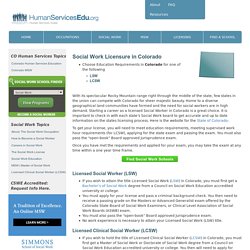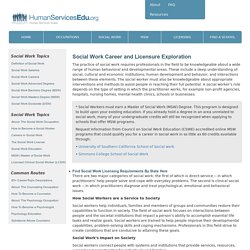

Michelle Lefco, Clinical Social Work/Therapist, Centennial, CO 80111. Dr. Lauran Jacks, Psychologist, Centennial, CO 80111. The information in Psychology Today is provided exclusively by participating therapists.

When you see this seal, it means Psychology Today has verified the following: The name and contact details of the professional That the professional's license, if applicable, is valid within the state in which he or she practices That the professional is not subject to any license strictures preventing practice Psychology Today verifies the information at the time a therapist is initially listed in the directory and then upon expiration of the professional's credentials. If you find any of the information in Psychology Today directory to be inaccurate in any way, please tell us by emailing: therapist@psychologytoday.com You assume full responsibility for the communications with any therapist you contact through Psychology Today directory.
MuscleRelaxation. National Association of Social Workers. Find & Meet a Therapist. Breakthrough : Confidential online counseling and therapy. Li Brookens, LCSW – Healing through words. Licensed Clinical Social Worker. The Licensed Clinical Social Worker or LCSW, is a sub-sector within the field of Social Work.

They work with clients in order to help them deal with issues involving their mental and emotional health. This could be related to substance abuse, past trauma or mental illness. There are a wide variety of specializations the Licensed Clinical Social Worker can focus on. These include specialties such as: working with mental health issues, substance abuse, public health, school social work, medical social work, marriage counseling or children and family therapy. Colorado Social Work License to Become a LSW or LCSW in CO. With its spectacular Rocky Mountain range right through the middle of the state, few states in the union can compete with Colorado for sheer majestic beauty.

Home to a diverse geographical land communities have formed and the need for social workers are in high demand. Starting a career as a licensed Social Worker in Colorado is a great choice. It is important to check in with each state’s Social Work board to get accurate and up to date information on the states licensing process. Here is the website for the State of Colorado: To get your license, you will need to meet education requirements, meeting supervised work hour requirements (for LCSW), applying for the state exam and passing the exam.
The Social Worker: A Career Exploration Towards a Social Work Occupation: Education, Practice, Ethics, Policy, Theory. The practice of social work requires professionals in the field to be knowledgeable about a wide range of human behavioral and developmental areas.

These include a deep understanding of: social, cultural and economic institutions; human development and behavior; and interactions between these elements. The social worker must also be knowledgeable about appropriate interventions and methods to assist people in reaching their full potential. A social worker’s role depends on the type of setting in which the practitioner works, for example non-profit agencies, hospitals, nursing homes, mental health clinics, schools or businesses. LCSW vs. Psychologist. While both the Psychologist and the Licensed Clinical Social Worker (LCSW) are able to perform a variety of functionally similar mental health therapies and diagnostic procedures, there are differences in the level and kinds of training both receive.

There are also subtle and not so subtle differences in the overall outlook of social work vs. psychology generally speaking. This article will explore the similarities and differences between these two disciplines. Licensed Clinical Social Worker. Whole Person Wellness. To Cross Or Not To Cross: Do Boundaries In Therapy Protect Or Harm? By Ofer Zur, Ph.D.

For an online course on Boundaries in Psychotherapy for CE Credit based partly on this web page, Click Here Source: Zur, O. (2004). To Cross or Not to Cross: Do boundaries in therapy protect or harm. Psychotherapy Bulletin, 39 (3), 27-32. Posted by permission of Division 29 (psychotherapy) of APA. For the original publication in PDF-printable format, click here. Between Client and Therapist. Depression can be understood in part as a disorder of connection; as a result, the fastest way out of it is through improving your skills of connection with others.

One of the most helpful elements in recovery is the quality of the relationship with the therapy professional and how consistent and trustworthy the connection remains between client and therapist. The patient-therapist relationship becomes a crucible of wellness for many reasons, but the most important may be because it is a kind of living laboratory of all relationships. 7 Challenges of Psychotherapy. Every treatment has its downsides.

Medications have side effects and it can often feel like a revolving door trying to find one (or a combination of a few) that work for any particular person. And while medications’ side effects are well-publicized, few articles are written about the potential “side effects” of other types of treatments, such as psychotherapy. Psychotherapy can be a powerful treatment for everything ranging from depression and attention deficit disorder, to anxiety and panic attacks.
What Makes a Successful Therapist-Patient Relationship? Several weekends ago Daphne Merkin wrote a moving piece in the Sunday New York Times Magazine about psychoanalysis and the therapists that go with it.

Aside from an eloquent account of her forty years in therapy, I found the questions she raised about its ultimate value intriguing. First, it caused me to reflect on my own experience with psychologists. My Life in Therapy. All those years, all that money, all that unrequited love.

It began way back when I was a child, an -riddled 10-year-old who didn’t want to go to school in the morning and had at night. Even in a family like mine, where there were many siblings (six in all) and little attention paid to dispositional differences, I stood out as a neurotic specimen. And so I was sent to what would prove to be the first of many in the four and a half decades to follow — indeed, I could be said to be a one-person boon to the therapeutic establishment — and was initiated into the curious and slippery business of self-disclosure. To this day, I’m not sure that I am in possession of substantially greater self-knowledge than someone who has never been inside a therapist’s office.
To see the full article, subscribe here. Correction: August 8, 2010. What Are the Different Types of Therapy for Social Anxiety Disorder? Updated March 07, 2014. Written or reviewed by a board-certified physician. See About.com's Medical Review Board. If you have been recently diagnosed with social anxiety disorder (SAD), you may be exploring therapy options. Although cognitive-behavioral therapy has been shown effective and is most commonly used in treating SAD, there are other options as well. Frequently Asked Questions About Psychotherapy. Why Isn’t Therapy Working?-When Psychotherapy Isn’t Helping With Panic Disorder. Problems with social support Family and friends can play an important role in your recovery process. By encouraging your personal growth, your loved ones can be a huge assistance in helping you succeed in your therapeutic efforts.
At the same time, some loved ones can actually complicate your therapeutic treatment process. As a part of therapy, you will develop new skills and strategies to manage your panic disorder symptoms. Some family and friends may unintentionally enable you by not giving you the independence you will need to change and grow. Patient-Therapist Boundary Issues. What Makes a Successful Therapist-Patient Relationship? What Makes a Successful Therapist-Patient Relationship?